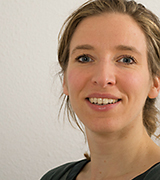 Almost everyone knows someone who has a chronic disease. An increasing number of people suffer from two or more chronic diseases (i.e. multimorbidity). Currently, an estimated 50 million people in the EU live with multiple chronic diseases. In people aged over 65 years, multimorbidity can be considered to be the rule rather than the exception. These developments pose a major challenge to healthcare systems, because most current care delivery models are based on a single disease approach. Consequently, a person with multimorbidity will receive information and care from different healthcare providers and perspectives, resulting in a highly fragmented care service. This fragmentation does not only have implications for the quality of care, it also impacts on patients’ quality of life and healthcare costs.
Almost everyone knows someone who has a chronic disease. An increasing number of people suffer from two or more chronic diseases (i.e. multimorbidity). Currently, an estimated 50 million people in the EU live with multiple chronic diseases. In people aged over 65 years, multimorbidity can be considered to be the rule rather than the exception. These developments pose a major challenge to healthcare systems, because most current care delivery models are based on a single disease approach. Consequently, a person with multimorbidity will receive information and care from different healthcare providers and perspectives, resulting in a highly fragmented care service. This fragmentation does not only have implications for the quality of care, it also impacts on patients’ quality of life and healthcare costs.
In order to provide sustainable high quality chronic care, it is important to take a holistic approach to chronic illness care. Many countries in Europe are already experimenting with new models of chronic care delivery. Integrated care models seem to have the potential to meet the complex needs of people with multimorbidity, while making efficient use of resources. These models are characterised by patient centered multidisciplinary care, integrating health and social care, using new technologies to support self management and improving collaboration between caregivers.
Being a researcher with interests in the experiences and consequences of living with chronic illness, I was excited to be given the opportunity to join in a major project entitled ICARE4EU, aimed at contributing to the innovation of chronic illness care for European citizens. ICARE4EU is a collaboration between several institutes in Europe and is co-funded by the Health Programme of the European Union. For this project, we describe existing integrated care initiatives addressing multimorbidity that are developed and implemented in 30 European countries and analyse their characteristics. By disseminating our findings about potentially effective and efficient initiatives, we hope to contribute to the adoption of good practices throughout Europe.
During a first plenary meeting with the project partners in March 2013 in Brussels, we discussed the aims and outline in detail and reached constructive agreements about the next steps. In the months that followed, we developed the instruments and protocols by which detailed information on existing integrated care initiatives will be gathered. This information will be collected in the first half of 2014 in cooperation with experts located in the 30 European countries. Data will be compiled to provide an insight into the “state of the art” of integrated care for people with multi-morbidity, along with a description of the objectives, processes, and quality of the care initiatives, as well as the contexts in which they operate. Furthermore, we will identify and analyse good practices in order to provide insight into their features, success in terms of outcomes, costs, and sustainability, as well as management and implementation strategies.
Our (intermediate) findings will be disseminated via multiple media (e.g. reports, fact sheets, the website) and all the project results will be launched at an international symposium in 2016.
We anticipate that our project will facilitate the exchange of knowledge and experiences throughout Europe and that the project insights will help policymakers and stakeholders to plan, decide, and advocate integrated care for people with multiple chronic conditions.
In order to keep you informed about the project developments, several project members will be writing blogs in the upcoming period.
Acknowledgements:
This blog arises from the project Innovating care for people with multiple chronic conditions in Europe (ICARE4EU), which has received funding from the European Union, in the framework of the Health Programme.
Involved partners
- NIVEL (Netherlands institute for health services research), project coordinator
- TUB (Technische Universität Berlin)
- UEF (University of Eastern Finland)
- INRCA (Italian National Institute of Health and Science on Aging)
- University of Warwick
- AGE Platform Europe
- Eurocarers, European association working for carers
Supportive institution
European Observatory on Health Systems and Policies (OBS)
Competing interests: I declare that I have read and understood the BMJ Group policy on declaration of interests and I have no relevant interests to declare.
Daphne L Jansen PhD, is researcher in the department of care needs of the chronically ill and disabled at The Netherlands Institute for Health Services Research (NIVEL), Utrecht, The Netherlands.
